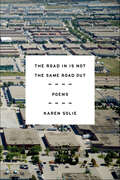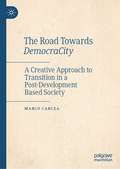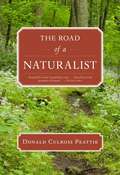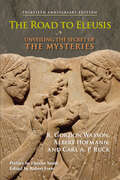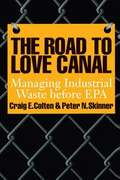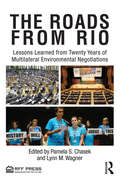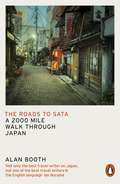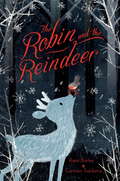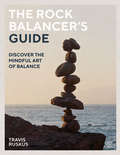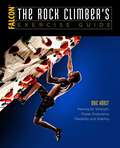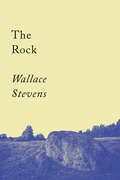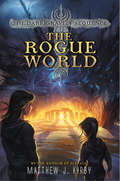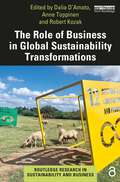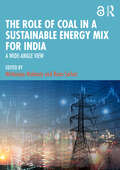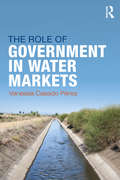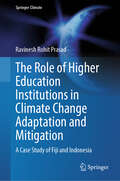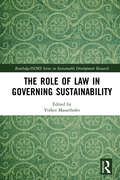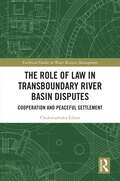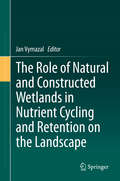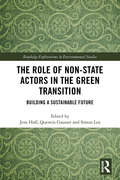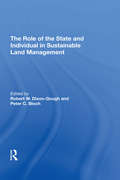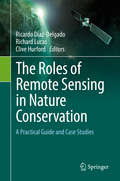- Table View
- List View
The Road In Is Not the Same Road Out: Poems
by Karen SolieA profound new collection from one of poetry's rising stars"Introducing Karen Solie, I would adapt what Joseph Brodsky said some thirty years ago of the great Les Murray: ‘ . . . He is, quite simply, the one by whom the language lives.' . . . And, yes, as we embark on the third millennium of our so-called Common Era, she is indeed the one by whom the language lives." —Michael Hofmann, London Review of BooksA sublime singer of existential bewilderment, Karen Solie is one of contemporary poetry's most direct and haunting voices. A poet of the in-between places—the purgatory of wayside motels and junkyards, the abandoned Calgary ski jump and the eternal noon of Walmart—her poems stake out startlingly new territory and are songs for our emerging world, an age of uncertainty and melting icebergs. In Solie's new collection, The Road In Is Not the Same Road Out, she restlessly excavates our civilization, the moments of tough luck, casual violence, naked desire, and inchoate menace, pursuing "Beauty and terror / in equal measure" and fixing on the "Intrigue of a boarded-up building. / We want to get in there and find out what's the matter with it." Amplifying the elegant recklessness of her Griffin Poetry Prize–winning collection Pigeon, these poems bear an uncanny poetic intelligence and unflinching vision.
The Road Towards DemocraCity: A Creative Approach to Transition in a Post-Development Based Society
by Marco CarceaThis book discusses the challenges faced by the homo resaliens and his need for a transition to a more sustainable social, economic, and environmental system. It fills a gap in the existing literature and provides a new perspective by changing the etymology of the word resilience: no more resiliere, but resalio. By comparing and analysing the relevant literature, the author has coined the term homo resaliens (resilient man), in contrast to the failure of the homo oeconomicus, the corruption of the homo politicus, the incompleteness of homo sustinens, and the limits of homo ecologicus. Opening a new debate in which the role of academia and res publica are fundamental to safeguard human communities and future generations, this book will greatly assist governments that wish to understand the socio-political and economic implication of resilience in terms of social inclusiveness and long term social and environmental sustainability.
The Road of a Naturalist
by Donald Culross PeattieThe Road of a Naturalist is a fascinating autobiographical wonder written by one of America's most beloved naturalists at the height of his fame. A scientist, a philosopher, and a poet, Donald Culross Peattie takes us on an confessional journey across the landscape of his life. Told in flashbacks of years past and interspersed with impressions of a journey by motorcar across the American West, it is intensely personal. It is American in the best sense of the word. From saying goodbye to the trees at his childhood home on Lake Michigan to a man formed via Harvard and New York City, finally discovering a belief in the nature of things in a cabin in the Grand Tentons, it is not told as as linear life story but rather an adventure in living, in science, in thought.
The Road of a Naturalist
by Donald Culross PeattieThe Road of a Naturalist is a fascinating autobiographical wonder written by one of America's most beloved naturalists at the height of his fame. A scientist, a philosopher, and a poet, Donald Culross Peattie takes us on an confessional journey across the landscape of his life. Told in flashbacks of years past and interspersed with impressions of a journey by motorcar across the American West, it is intensely personal. It is American in the best sense of the word. From saying goodbye to the trees at his childhood home on Lake Michigan to a man formed via Harvard and New York City, finally discovering a belief in the nature of things in a cabin in the Grand Tentons, it is not told as as linear life story but rather an adventure in living, in science, in thought.
The Road to Eleusis: Unveiling the Secret of the Mysteries
by Carl A. Ruck Albert Hofmann R. Gordon Wasson"...one of the two best kept secrets in history, and this book is the most successful attempt I know to unlock it. ... [A] historical tour de force."--Huston Smith, author of The World&’s ReligionsThe secretive Mysteries conducted at Eleusis in Greece for nearly two millennia have long puzzled scholars with strange accounts of initiates experiencing otherworldly journeys. In this groundbreaking work, three experts—a mycologist, a chemist, and a historian—argue persuasively that the sacred potion given to participants in the course of the ritual contained a psychoactive entheogen. The authors then expand the discussion to show that natural psychedelic agents have been used in spiritual rituals across history and cultures. Although controversial when first published in 1978, the book&’s hypothesis has become more widely accepted in recent years, as knowledge of ethnobotany has deepened. The authors have played critical roles in the modern rediscovery of entheogens, and The Road to Eleusis presents an authoritative exposition of their views. The book&’s themes of the universality of experiential religion, the suppression of that knowledge by exploitative forces, and the use of psychedelics to reconcile the human and natural worlds make it a fascinating and timely read. This 30th anniversary edition includes an appreciative preface by religious scholar Huston Smith and an updated exploration of the chemical evidence by Peter Webster.
The Road to Love Canal
by Bruce Piasecki Craig E. Colten Peter N. SkinnerThe toxic legacy of Love Canal vividly brought the crisis in industrial waste disposal to public awareness across the United States and led to the passage of the Superfund legislation in 1980. To discover why disasters like Love Canal have occurred and whether they could have been averted with knowledge available to waste managers of the time, this book examines industrial waste disposal before the formation of the Environmental Protection Agency in 1970. Colten and Skinner build their study around three key questions. First, what was known before 1970 about the hazards of certain industrial wastes and their potential for causing public health problems? Second, what were the technical capabilities for treating or containing wastes during that time? And third, what factors other than technical knowledge guided the actions of waste managers before the enactment of explicit federal laws? The authors find that significant information about the hazards of industrial wastes existed before 1970. Their explanations of why this knowledge did not prevent the toxic legacy now facing us will be essential reading for environmental historians and lawyers, public health personnel, and concerned citizens.
The Roads from Rio: Lessons Learned from Twenty Years of Multilateral Environmental Negotiations
by Pamela S. Chasek Lynn M. WagnerAt the 1992 United Nations Conference on Environment and Development, popularly known as the Rio Earth Summit, the world’s leaders constructed a new "sustainable development" paradigm that promised to enhance environmentally sound economic and social development. Twenty years later, the proliferation of multilateral environmental agreements points to an unprecedented achievement, but is worth examining for its accomplishments and shortcomings. This book provides a review of twenty years of multilateral environmental negotiations (1992-2012). The authors have participated in most of these negotiating processes and use their first-hand knowledge as writers for the International Institute for Sustainable Development’s Earth Negotiations Bulletin as they illustrate the changes that have taken place over the past twenty years. The chapters examine the proliferation of meetings, the changes in the actors and their roles (governments, nongovernmental organizations, secretariats), the interlinkages of issues, the impact of scientific advice, and the challenges of implementation across negotiating processes, including the Framework Convention on Climate Change, the Convention to Combat Desertification, the Convention on Biological Diversity, the Commission on Sustainable Development, the UN Forum on Forests, the chemicals conventions (Stockholm, Basel and Rotterdam), the Montreal Protocol on Substances that Deplete the Ozone Layer, the Convention on International Trade in Endangered Species, the Convention on Migratory Species and the International Treaty on Plant Genetic Resources for Food and Agriculture.
The Roads to Sata: A 2000-mile walk through Japan
by Alan Booth'A memorable, oddly beautiful book' Wall Street Journal'A marvellous glimpse of the Japan that rarely peeks through the country's public image' Washington PostOne sunny spring morning in the 1970s, an unlikely Englishman set out on a pilgrimage that would take him across the entire length of Japan. Travelling only along small back roads, Alan Booth travelled on foot from Soya, the country's northernmost tip, to Sata in the extreme south, traversing three islands and some 2,000 miles of rural Japan. His mission: 'to come to grips with the business of living here,' after having spent most of his adult life in Tokyo.The Roads to Sata is a wry, witty, inimitable account of that prodigious trek, vividly revealing the reality of life in off-the-tourist-track Japan. Journeying alongside Booth, we encounter the wide variety of people who inhabit the Japanese countryside - from fishermen and soldiers, to bar hostesses and school teachers, to hermits, drunks and the homeless. We glimpse vast stretches of coastline and rambling townscapes, mountains and motorways; watch baseball games and sunrises; sample trout and Kilamanjaro beer, hear folklore, poems and smutty jokes. Throughout, we enjoy the wit and insight of a uniquely perceptive guide, and more importantly, discover a new face of an often-misunderstood nation.
The Robin and the Reindeer
by Rosa BaileyA little reindeer, lost in the forest ... and a robin, who will help her fly home; this is a gift book for children and parents to treasure.Little Reindeer is lost in the forest.It begins to snow. And as the snowflakes crowd through the trees, she catches a glimpse of something: a flash of startling red and wings blurring in the air. A robin! In a piece of woodland magic, the generous robin lends the red from his feathers to Little Reindeer's nose, and they fly home together. A perfect gift book for the winter season, with a gorgeous foiled and textured cover. For anyone who loves The Snowman by Raymond Briggs, or The Fox and the Star by Coralie Bickford-Smith.
The Rock Balancer's Guide: Discover the Mindful Art of Balance
by Travis RuskusThe first mainstream book about rock balancing, combining inspiring full-colour photographs with practical guidance on how to balance rocks and, in the process, let go of limiting beliefs and find happiness in the present moment.Rock balancing is the practice of piling up stones in natural settings, creating everything from simple towers to amazingly elaborate and apparently gravity-defying edifices. People balance rocks for fun, to challenge themselves and as a way of being mindful, connecting to nature and focusing on the present moment. This is the first mainstream book about the meditative art of rock balancing, combining technical advice on creating the structures with c. 40 spectacular colour photographs of the author's own balances, as well as guidance on approaching rock balancing as a mindfulness/meditation practice. As the book guides you through the practical techniques of rock balancing, it also explains how to breathe properly, how to approach the rocks with self-belief, face fear and go beyond what you had previously thought to be your limits. Finally, it discusses how to let go and destroy the balances you have created, leaving nature in a pristine state. The book includes inspirational quotes, tips and step-by-step instructions for beginner and more advanced rock balancers, as well as a range of meditative exercises to do while balancing, and fun challenges, such as balance 10 rocks from the biggest to smallest, balance a rock on the top of your head and balance three rocks in an impossible way. A rock balance is a metaphor for whatever you are trying to achieve in life - and this practice allows you to train yourself to do more than you ever thought possible.
The Rock Climber's Exercise Guide: Training for Strength, Power, Endurance, Flexibility, and Stability (How To Climb Series)
by Eric HorstThe only conditioning book a rock climber needs!Rock climbing is one of the most physically challenging sports, testing strength, endurance, flexibility, and stamina. Good climbers have to build and maintain each of these assets. This revised and updated edition of the classic book, Conditioning for Climbers, provides climbers of all ages and experience with the knowledge and tools to design and follow a comprehensive, personalized exercise program.
The Rock Garden (Fountas & Pinnell LLI Gold #Level P)
by Nancy WhiteStep into the Rock Garden of Chandigarh in India, it's like entering a magical world.
The Rock: Poems (Counterpoints #4)
by Wallace StevensAn excellent introduction to “the best and most representative American poet” (Harold Bloom), this palm–sized, keepsake edition is the first separate publication of this remarkable collection of late poems.In 1955, shortly before his death, Wallace Stevens earned the Pulitzer Prize for Poetry and the National Book Award for The Collected Poems of Wallace Stevens. The collection gathered most of his life’s work, and featured 25 previously unpublished poems. Stevens imagined that those poems would stand alone as their own volume—The Rock. Featuring some of his most memorable poems, including “Not Ideas about the Thing but the Thing Itself,” The Rock is a sublime selection of works from one of American’s most brilliant, beloved modernist.“After the reader has admired certain lines because Shakespeare might have written them, he begins to admire them because only Stevens could.” —Robert Fitzgerald“One might as well argue with the Evening Star and find fault with so much wit and grace and intelligence . . . such an overwhelming and exquisite command both of the worlds and of the rhythms of our language; such charm and irony, such natural and philosophical breadth of sympathy, such dignity and magnanimity.” —Randall Jarrell
The Rogue World
by Matthew J. KirbyPerfect for fans of the Percy Jackson and Seven Wonders series, The Rogue World is the third book in an epic, fast-paced middle grade adventure trilogy by acclaimed author Matthew J. Kirby.After the shattering new discoveries they made in Egypt, Eleanor and her mother, Samantha, have been separated: Samantha working with the sinister Dr. Watkins to ensure the survival of only a small number of humans, and Eleanor and her friends uniting in the desperate hope of saving the entire planet. They are preparing for a trek to the icy Himalayas, where they believe they’ll find the Master Concentrator and a chance to end the threat of the rogue planet—one way or the other. But that’s when something happens that none of them expected: an alien spacecraft crash lands on earth, throwing the globe into crisis and changing everything for Eleanor. She has just begun to understand the mysterious power that sets her apart from everyone else on the planet; now, everything rests on her ability to control the same alien intelligence that has pushed us to the brink of extinction.
The Role of Business in Global Sustainability Transformations (Routledge Research in Sustainability and Business)
by Robert Kozak Anne Toppinen Dalia D’AmatoDrawing on contributions from more than thirty scholars and experts in the field, this book examines the role of business as an enabler, as an inhibitor, and ultimately as a co-actor in global sustainability transformations expected over the next few decades. The Role of Business in Global Sustainability Transformations employs several theoretical perspectives and provides abundant examples and cases to discuss a variety of emerging concepts, phenomena, and trends shaping business sustainability. Weaving through the chapters, the editors present core tensions and sources of inertia towards transformative change, and acknowledge that envisioning multiple solutions and pathways are possible and desirable. They advocate for the need to align visions, actions and time horizons between policy, society and business in addressing the interlinked socio-ecological challenges that our society currently faces. This book will be an important resource for scholars and professionals working in the field of sustainability and sustainable business, and a vital educational text for students interested in this discipline.
The Role of Coal in a Sustainable Energy Mix for India: A Wide-Angle View
by Mritiunjoy Mohanty and Runa SarkarAs India switches away from a coal-based to a more sustainable energy use pattern, which pathway will it adopt? What is the nature of challenges that it will face, and who will be affected? Who will gain? This volume offers insights into the steps and challenges involved in this transition and addresses some urgent questions about the possible pathways for India’s renewable energy generation. Including contributions from researchers, policymakers, and practitioners, it draws on different disciplines, ranging from science and technology to economics and sociology, and situates the issue of low carbon transition within an interdisciplinary framework. India has committed to gradual decarbonisation of its economy. This book takes this as its starting point and uses a wide-angle lens, incorporating macro as well as micro views, to understand the possible next steps as well as trade-offs that will inevitably be posed. It incorporates the perspectives of all stakeholders ranging from central and state governments, public and private sector firms, on the one hand, to individuals and local communities, on the other, to explore their role in the transition, their interests, and how these will change and evolve. This timely volume will be of interest to students and researchers of environmental studies, development studies, environmental economics, political studies, and Asian studies. It will also be useful to academics, practitioners, and policymakers working on issues related to climate change, sustainable development, energy policy and economics,and public policy.
The Role of Government in Water Markets
by Vanessa Casado-PerezWhile water is an increasingly scarce resource, most existing methods to allocate it are neither economically nor environmentally efficient. In these circumstances, water markets offer developed countries a form of regulatory response capable of overcoming many of the shortcomings of current water management. The debate on water markets is, however, a polarized one. This is mostly a result of the misunderstanding of the roles played by governments in water markets. Proponents mistakenly portrayed them as leaving governments, for the most part, out of the picture. Opponents, in turn, understand commodification of water and administration by public agencies as incompatible. Casado Pérez argues that both sides of the debate overlook that water markets require a deeper and more varied governmental intervention than markets for other goods. Drawing on economic theories of regulation based on market failure, she explains the different roles governments should play to ensure a well-functioning water market, and concludes that only the visible hand of governments can ensure the success of water markets. Casado Pérez proves her case by examining case studies of California and Spain to assess the success of their water markets. She explores why water markets were more extensively institutionalized in California than in Spain in the first ten years since their introduction and how the role of governments in each case study impacted water market operation. This unique analysis of governmental roles in water markets, alongside qualitative studies of California and Spain, offers valuable guidance to understand environmental markets and to face the challenges presented by water management in regions with periodical droughts.
The Role of Higher Education Institutions in Climate Change Adaptation and Mitigation: A Case Study of Fiji and Indonesia (Springer Climate)
by Ravinesh Rohit PrasadThis book provides the readers with a description of climate change and the role of the University in promoting climate change education. It explores the Higher Education Institutions (HEIs) curriculum at various universities worldwide and how they have incorporated climate change into the university-wide programs. The book also looks at the causes and impacts of climate change and the countries most affected by this phenomenon, particularly Fiji and Indonesia. It describes how the various sectors, such as health, agriculture, and tourism, have been impacted by climate change. This book also summarizes the roles of United Nations Organizations in implementing climate change education at universities. The importance of climate change education is expressed in terms of adaptation and mitigation and to foster resilience, adaptability, and adaptation to climate change. The role of university student organizations aimed at environmental protection for climate change adaptation and mitigation is also discussed in this book.
The Role of Law in Governing Sustainability (Routledge/ISDRS Series in Sustainable Development Research)
by Volker MauerhoferThis book explores how public and private actors can interrelate to achieve also by means of law a sustainable development which is beneficial for the environment, society and the economy. The Role of Law in Governing Sustainability assesses the structure, functions and perspectives of law in the wider governance frameworks of sustainable development. It provides latest and in-depth insights from each of the three dimensions of sustainable development and the relations among them. Latest political developments on global and regional level related to the environmental, social and the economic dimensions are provided as well as in-depth case studies. Thereby the book explores how international and national laws and governance can help us move towards a more sustainable future. This book will be of great interest to students and scholars of environmental law, global governance and sustainable development.
The Role of Law in Transboundary River Basin Disputes: Cooperation and Peaceful Settlement (Earthscan Studies in Water Resource Management)
by Chukwuebuka EdumThis book examines the role legal rules play in the resolution of disputes in transboundary river basins. When states fail to resolve disputes over shared water resources, many cast such failures on inadequate or ineffective legal rules. With this view in mind, this book examines the role that legal rules do, and can, play in aiding the peaceful settlement of disputes and furthering cooperation between different parties. Building on the interactional theory of law, this book formulates three analytical frameworks: the effect of norm-generating processes, the effects of water-related agreements and/or arrangements in the basins, and the effect of international water. It uses these frameworks to assess the role of law in the processes of cooperation and peaceful settlement of disputes on transboundary river basin by drawing on four illustrative case studies: the Jordan River Basin, the Nile River Basin, the Mekong River Basin, and the Indus River Basin. In doing so, this book presents a unique perspective on the multi-functional role of legal rules in those processes. Tapping into the global discussion on water security and water-related conflicts, this book stimulates readers to explore broader or interdisciplinary perspectives for understanding water-related issues. This book will be of great interest to students and scholars interested in water resource management, water law, environmental politics, conflict resolution, and sustainable development more generally.
The Role of Natural and Constructed Wetlands in Nutrient Cycling and Retention on the Landscape
by Jan VymazalNatural and constructed wetlands play a very important role on the landscape and their ecological services are highly valuable. In fact, some wetland types are regarded as one of the most valuable ecosystems on the Earth. Water management, including flood water retention, biomass production, carbon sequestration, wastewater treatment and biodiversity sources, are among the most important ecological services of wetlands. The book is aimed at the use of constructed wetlands for wastewater treatment and for the evaluation of various ecosystem services of natural wetlands. Special attention is paid to the role and potential use of wetlands on the agricultural landscape. The book presents up-to-date results of ongoing research and the content of the book could be used by wetland scientists, researchers, engineers, designers, regulators, decision-makers, universities teachers, landscape engineers and landscape planners as well as by water authorities, water regulatory offices or wastewater treatment research institutions.
The Role of Non-State Actors in the Green Transition: Building a Sustainable Future (Routledge Explorations in Environmental Studies)
by Jens Hoff Quentin Gausset Simon LexThis book argues that there is no way to make progress in building a sustainable future without extensive participation of non-state actors. The volume explores the contribution of non-state actors to a sustainable transition, starting with citizens and communities of different kinds and ending with cities and city-networks. The authors analyse social, cultural, political and economic drivers and barriers for this transition, from individual behaviour to structural restraints, and investigate interplay between the two. Through a series of wide-ranging case studies from the UK, Australia, Germany, Italy and Denmark, and a number of comparative case studies, the volume provides an empirically and theoretically robust argument that highlights the need to develop, widen and scale up collective action and community-based engagement if the transition to sustainability is to be successful. This book will be of great interest to students and scholars of climate change, sustainability and environmental policy.
The Role of the State and Individual in Sustainable Land Management (International Land Management Ser.)
by Peter C. BlochBringing together case studies from Europe, Africa and North and South America, this book makes a fresh assessment of the role of the individual and the state in land development. It discusses a range of issues related to land reform, land development and land management, providing a unique reflection of the current state of research. Particular emphasis is laid on the implementation of sustainable processes of land development as an integrated principle of land management. The book examines the rights of the land users and addresses a number of issues relating to sustainability and land development, ranging from emerging land markets and environmental issues, through to natural resource development. The case studies provide practical examples of the application of land reform and land development to land management.
The Roles of Remote Sensing in Nature Conservation
by Clive Hurford Richard Lucas Ricardo Díaz-DelgadoThe book will provide an overview of the practical application of remote sensing for the purposes of nature conservation as developed by ecologists in collaboration with remote sensing specialists, providing guidance on all phases from the planning of remote sensing projects for conservation to the interpretation and validation of the images.
The Romance of the Colorado River
by Frederick S. DellenbaughIn 1871, seventeen-year-old Fred Dellenbaugh walked into a hotel room in Chicago, and with a “You’ll do, Fred,” began a lifetime of danger-fraught exploration. Under the lead of John Wesley Powell, a Civil War hero with only one arm, Fred journeyed into the Grand Canyon and its subsidiary canyons and rivers, with the intention of exploring, mapping, and recording description of the uncharted territory. The men found themselves battling the great force of the Colorado River, with its fatal, quick rapids and mighty waterfalls. Their small, frail boats were no match for the river, and as they began to capsize and as supplies were lost overboard, the expedition quickly became about survival. It was only through the steady command of Major Powell that the team prevailed. They went on to accomplish their mission, which has become historically significant today. <P><P> The Romance of the Colorado River is Dellenbaugh’s personal story, written thirty years after the great adventure. The volume includes twenty of the author’s original illustrations, as well as nearly 150 contemporary photographs, which provide an accurate image of what the explorers encountered during their expedition. Dellenbaugh also recounts previous attempts to explore the valley, by both Europeans and fellow Americans, adding a historical element to the story. Part adventure narrative and part geography survey of the Colorado River, this book offers a unique firsthand account of a fascinating scientific expedition.
